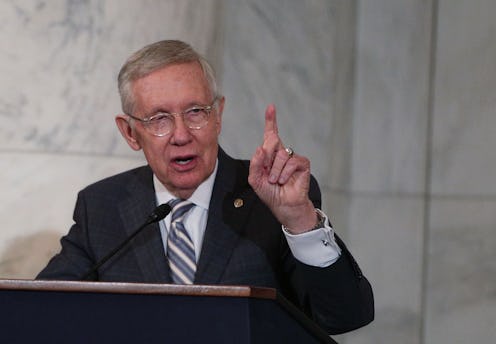News
Republicans Filibuster Jobless Benefits AGAIN
In a development that should surprise no one, Republicans filibustered an attempt to extend unemployment insurance to the 1.3 million Americans who saw their jobless benefits expire at the end of last year. Democrats managed to convince four moderate Republican to vote for the bill — no small feat — but that was still one vote short* of the 60 needed to advance the legislation. This is the third time the GOP has filibustered unemployment insurance since the new year.
“I’m beginning to believe there is nothing that will get Republicans to ‘yes,’” Senate Majority Leader Harry Reid observed. “It’s a ‘no’ vote because they don’t want to extend unemployment insurance.”
Well, yes. That is indeed what’s going on here. Republicans do claim that they want to extend unemployment insurance, but these claims are undermined by the internal GOP memo that leaked last month, which outlined the talking points Republicans should use in explaining why they oppose extending jobless benefits.
The plan that the Senate killed today would have extended benefits for three months, paying for them via a gimmicky budget process known as “pension smoothing.” It’s a bit complicated, but in essence, pension smoothing makes companies with pension funds pay a higher income tax now, for the next couple of years, in exchange for paying a lower tax rate in later years, which results in a bit more revenue in the short run — and higher deficits in the long run. It’s widely considered an illusory, irresponsible maneuver, and is in fact one of the very few budget policies that both liberal and conservative economists hate equally. (Yay bipartisanship!)
In any event, that’s not happening, since Republicans filibustered the bill. But Reid says that Democrats will keep trying.
“We are not going to give up on the unemployed,” said the Majority Leader.
*In a standard parliamentary move, Reid switched his vote to “no” at the last minute to preserve his ability to reintroduce the legislation at a later time.
